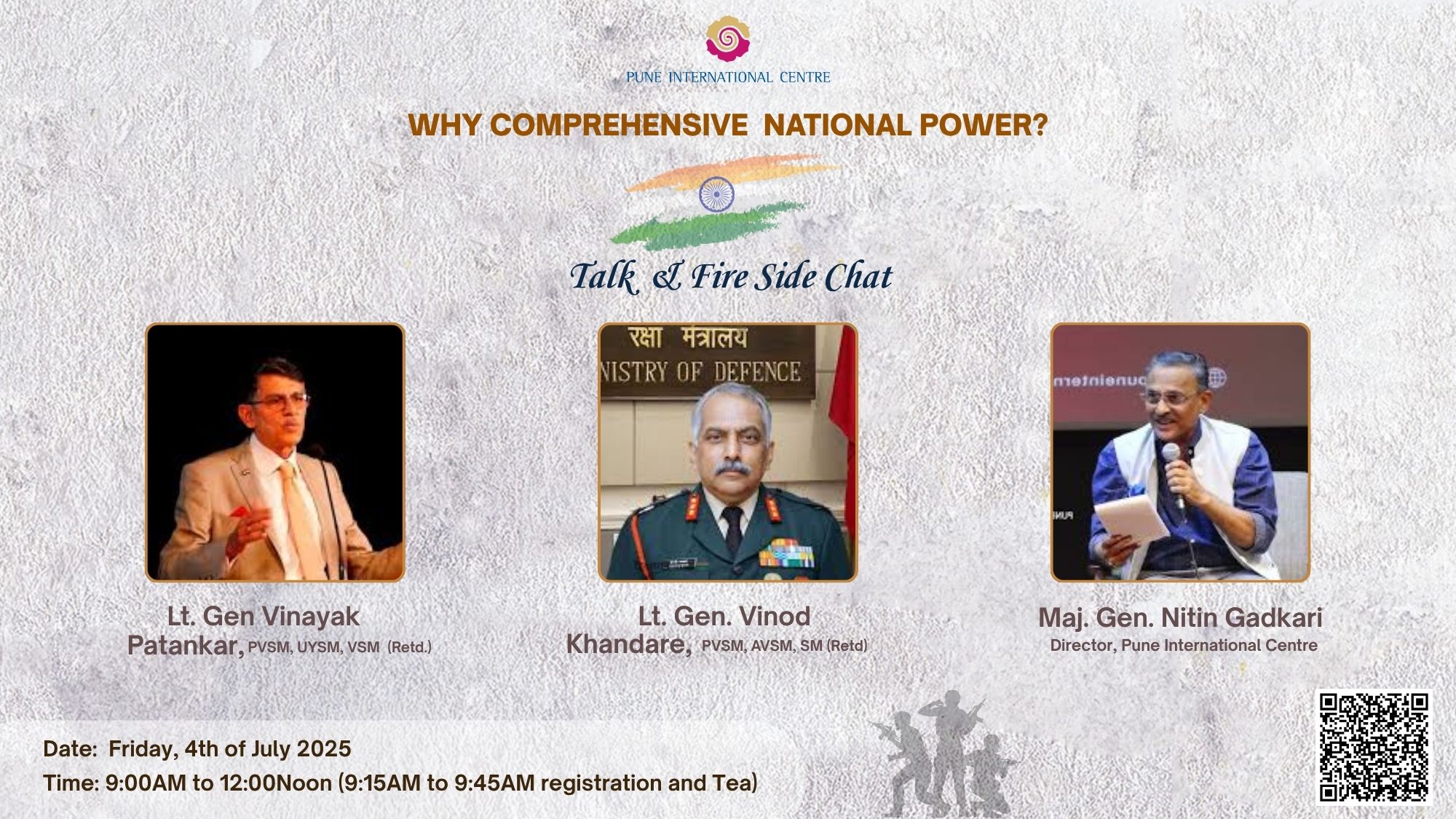PIC, in collaboration with the Venture Center, Janwani, BHAU Institute, Mahratta Chambers of Commerce (MCCIA) and Science and Technology Entrepreneurship Park (STEP), launched the Social Innovation Forum (SIF) on 20th March 2017. The inaugural lecture was delivered by Mr. Anshu Gupta, Founder of the NGO, Goonj and the programme was chaired by Dr. Raghunath Mashelkar.
Set under the massive canopy of the ancient Bodhi Tree at the Gokhale Institute of Politics and Economics (GIPE), the SIF came alive with beautiful lighting and the cheerful presence of the crowd. Mr. Gupta began his talk by introducing the audience to Goonj and the work done by the organisation. Established in 1999, Goonj has been working relentlessly to promote development through clothing in about 22 states of India. The organisation has 12 offices, around 600 workers and they deal with approximately 3000 tonnes of material every year. Logistics form the backbone of Goonj.
Addressing a common myth about Goonj, he clarified that Goonj is not about collecting clothes and distributing them to the poor, but rather about engaging the poor as labour and providing them clothes in return. When a disaster occurs, human storage capacity is directly affected and we are left without any extra clothing. More people die due to a lack of clothing in winter, than due to a natural calamity. In spite of this, lack of clothing has never been considered as an ‘issue’ and it is the dismissal of such real issues as “non-issues” that has hampered our development consistently.
Mr. Gupta questioned the definition and rationale of development work. “If development is a scale of 0 to 10, then 0 stands for the most basic things such as food, 3 square meals a day and perhaps primary education until the 5th grade”, he said. He pointed out that there are people working on a segment of the population that falls in the minus category, wherein bringing them to zero would mean survival and not development or progress. “On landing at Mumbai or Bangalore airport, if we feel we have arrived as a nation, then there is something fundamentally wrong in our thinking”, he opined.
Mr. Gupta focused on the difference between charity and development. Charity and development have an inversely proportional ratio. Charity is not a sustainable solution and must therefore be eliminated from our society. A society that engages in charity will never develop or progress.
There exist today a lot of models for development and scale-up and we often debate on which is better. “An ‘either-or’ model is not what this country needs though”, said Mr. Gupta. If we want to work on a massive scale, then we must be able to see through the lens of the people for whom we want to work and use their wisdom and skills to solve their problems. Efforts must be collaborative and our benchmarking as a nation must really improve.
The National Conference on Social Innovation (NCSI)-2016 Report was then released by Mr. Gupta and Dr. Mashelkar. Mr. Krishna Thiruvengadam, an Innovator who made a presentation at the NCSI-2016 also shared his story with the audience and thanked the organisations for supporting him. In his concluding remarks, Dr. Mashelkar said that India has a lot of potential energy and it must now be translated into kinetic energy. Speed, scale and sustainability are the challenges for India and we must face them head-on.




